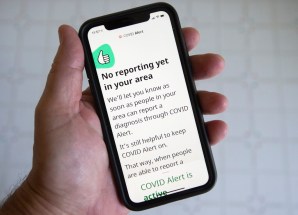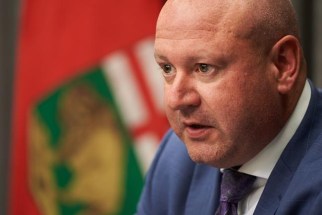Public health, privacy remain pandemic balancing act
Read this article for free:
or
Already have an account? Log in here »
To continue reading, please subscribe:
Monthly Digital Subscription
$0 for the first 4 weeks*
- Enjoy unlimited reading on winnipegfreepress.com
- Read the E-Edition, our digital replica newspaper
- Access News Break, our award-winning app
- Play interactive puzzles
*No charge for 4 weeks then price increases to the regular rate of $19.00 plus GST every four weeks. Offer available to new and qualified returning subscribers only. Cancel any time.
Monthly Digital Subscription
$4.75/week*
- Enjoy unlimited reading on winnipegfreepress.com
- Read the E-Edition, our digital replica newspaper
- Access News Break, our award-winning app
- Play interactive puzzles
*Billed as $19 plus GST every four weeks. Cancel any time.
To continue reading, please subscribe:
Add Free Press access to your Brandon Sun subscription for only an additional
$1 for the first 4 weeks*
*Your next subscription payment will increase by $1.00 and you will be charged $16.99 plus GST for four weeks. After four weeks, your payment will increase to $23.99 plus GST every four weeks.
Read unlimited articles for free today:
or
Already have an account? Log in here »
Hey there, time traveller!
This article was published 18/09/2020 (1908 days ago), so information in it may no longer be current.
For more than six months, public health officials have been testing Manitobans for the novel coronavirus — 161,473 tests, to be exact.
In nearly every confirmed case, the province has released basic information, including a patient’s gender, age-range and health district.
Beyond that, keeping Manitobans informed during the novel coronavirus pandemic has been a patchwork approach, with inconsistencies, backtracking, and lack of detailed disclosures, as the public right to know and individual right to privacy collide.
Balancing privacy and transparency will continue to be a challenge as the pandemic response progresses, says Dr. Joss Reimer, a public health physician at the University of Manitoba.

“I can certainly understand why people want more information, but that’s just not fair to those who are experiencing infections and stigma,” Reimer said.
The Personal Health Information Act protects each resident’s right to obtain their health information, and sets out rules about the collection, use, disclosure, retention and destruction of such data. “Health information is personal and sensitive and its confidentiality must be protected so that individuals are not afraid to seek health care or to disclose sensitive information to health professionals,” it states.
Chief provincial public health officer Dr. Brent Roussin has repeatedly echoed this sentiment in defence of the few details that have been released about COVID-19 outbreaks.
“I can certainly understand why people want more information, but that’s just not fair to those who are experiencing infections and stigma.”
– Dr. Joss Reimer, public health physician.
It is, in part, why it took so long for Manitobans to find out how many cases are active in a given area and why Roussin reneged on a promise to provide specifics about cases in schools this week.
The province issued a notice Sept. 9 — one day after the opening of the new school year — to alert the public of a positive case involving a Grade 7 student in Room 20 at Churchill High School in Winnipeg. The following cases connected to schools have only been identified by building name.
During a subsequent briefing, Roussin cited “a tremendous amount of stigmatizing behaviour,” surrounding the first case; he said he must balance the need for privacy, so people don’t fear stigma and do seek testing, if advised to.
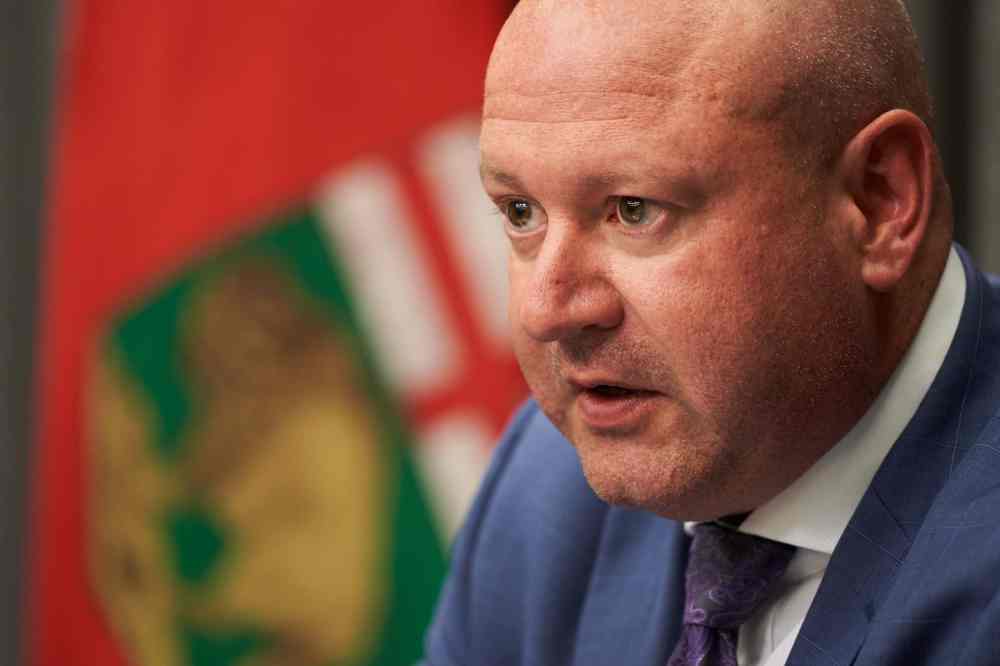
“Despite its name, there isn’t that direct obligation of public health to give all its information to the public… We have structured our legislation to respect individuals’ (privacy),” said Marika Warren, assistant professor of bioethics at Dalhousie University in Halifax.
Warren called Manitoba’s decision to release detailed information about the Churchill case an “‘oh-no moment.” Many public health decisions since March have been reactive rather than proactive, she said, adding these decisions are extremely difficult.
She said there needs to be special consideration about limiting stigma — which has been experienced by Hutterite colonies on the Prairies, African Nova Scotians, and populations between — because it can cause distrust amongst a targeted population. People will not seek testing or be honest with health providers if they do not trust them, Warren said.
“Despite its name, there isn’t that direct obligation of public health to give all its information to the public… We have structured our legislation to respect individuals’ (privacy).”
– Marika Warren, assistant professor of bioethics at Dalhousie University
When asked about the balance between privacy and public interests during a news conference this week, the country’s top doctor said personal safety could be compromised if communicators are not careful.
“When you’re talking about security or stigma or discrimination, you also have to be really careful about how you communicate that data, because people could be inadvertently, you know, their safety could be compromised,” Dr. Theresa Tam said.
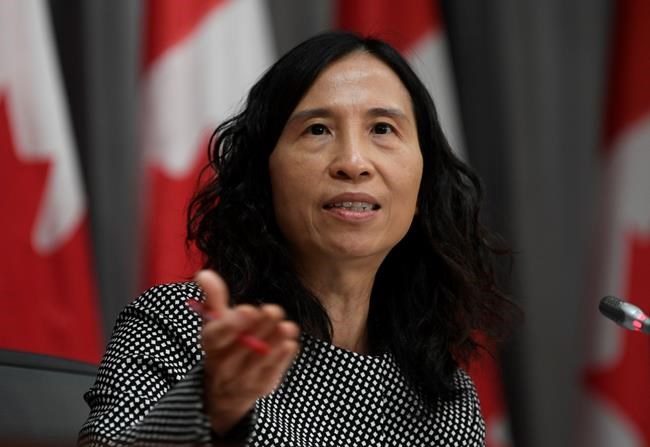
U of M ethicist RJ Leland echoed those comments, but he said he doesn’t see how withholding details about whether a school case involves a student or staff member would breach privacy or cause stigma.
“People can have a good argument for being nosy when the nosiness is relevant to one of those two things: evaluating the (government) response or making sure that they and other people that they know are making good health-related choices,” said Leland, an associate director at the Centre for Professional and Applied Ethics.
He added the public should be putting pressure on officials to be consistent with what is released and why.
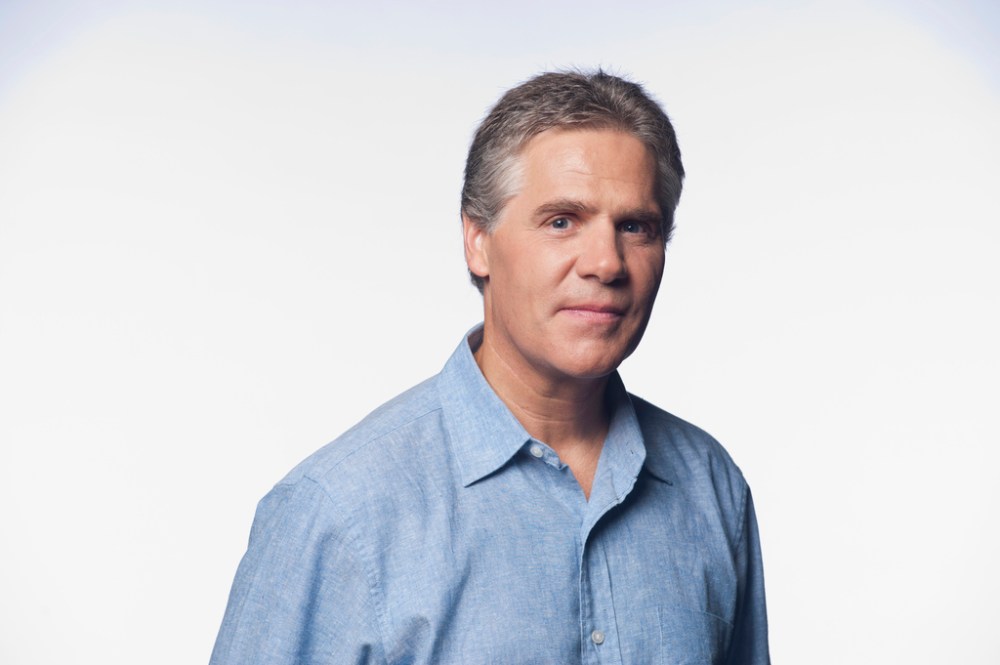
From an epidemiological perspective, local public health specialist Dr. James Blanchard said there needs to be a “compelling reason” to release specifics to the general public, such as reason to believe they will actually alter the decisions they make about their safety.
“It’s natural for parents who are concerned to want to have that information, but I think it becomes more and more difficult to have that level of specificity, from an epidemiological perspective, and it might give a false sense of security,” said Blanchard, an epidemiologist at the U of M.
Manitoba ombudsman weighs in
As far as Manitoba’s ombudsman is concerned, privacy legislation is not an obstacle to the public health crisis.
Instead, Jill Perron calls it a framework that guides decisions about sharing information in a manner that is “the least privacy-intrusive.”
“It is possible to protect privacy rights while simultaneously protecting public health,” Perron said in an emailed statement to the Free Press.
He prefers general communication about both the levels and type of circulation of a virus in a community. However, he said the province should want to provide enough information so people are confident in its response.
“That balance, in general, has been pretty good in Manitoba. People know when there’s more cases and more transmission. People are able to adapt and change their behaviours on that basis,” Blanchard said, noting the recent spike has resulted in more people wearing non-medical face masks.
Manitoba Education Minister Kelvin Goertzen — who, before the school year started, said he wanted to see detailed information provided about COVID-19 in schools — declined an interview request Friday.
In a statement, the minister applauded public health for disclosing “the appropriate level of information” to keep families informed while respecting privacy. “As we saw once classes resumed, we will adjust as needed as we gain experience,” Goertzen said.
The morning after details were released about the student at Churchill High, a parent in the school parking lot said she felt badly for the family, because the student’s peers would likely be able to identify them. At the same time, she said one of the reasons she felt comfortable during drop-off that day was because she knew her daughter’s classroom was far from Room 20.
maggie.macintosh@freepress.mb.ca
Twitter: @macintoshmaggie
— with files from Dylan Robertson

Maggie Macintosh reports on education for the Winnipeg Free Press. Funding for the Free Press education reporter comes from the Government of Canada through the Local Journalism Initiative.
Our newsroom depends on a growing audience of readers to power our journalism. If you are not a paid reader, please consider becoming a subscriber.
Our newsroom depends on its audience of readers to power our journalism. Thank you for your support.
History
Updated on Friday, September 18, 2020 7:55 PM CDT: Adds credit.

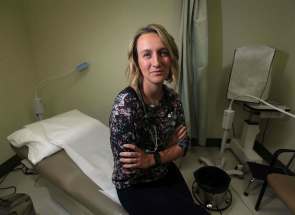
.jpg?h=215)
